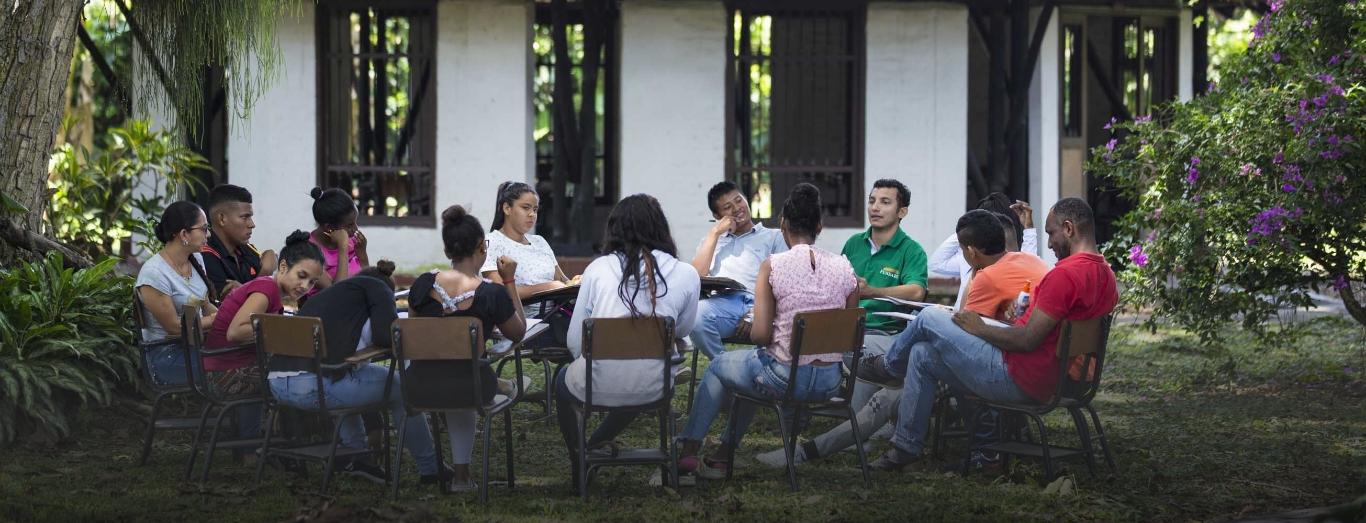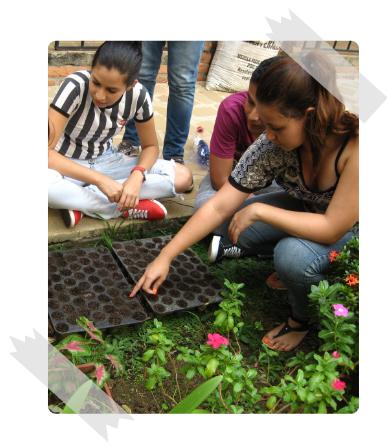
Insights
Empowering Communities Through Sustainable Farming and Education

Agroforestry
Agroforestry combines elements of agriculture and forestry to create more diverse, productive, profitable, healthy, and sustainable land-use systems. Small-scale agroforestry involves integrating trees into agricultural practices on smaller farms or alley cropping (crops between rows of trees). Agriculture and forestry systems balance various needs, from providing a diverse and adequate supply of nutritious food to planting trees for commercial and environmental purposes.
Transforming the Environment Program: Learnings and Systemization
Connecting Through Audiovisual Impact
The project decided on an audiovisual systematization of the work process. This decision was made to allow the experience to be shared more widely and less exclusively since the population of commune 20 has a high illiteracy rate. Audiovisual systematization will also help organizations, groups, and people interested in supporting this initiative reach each other.
Nurturing Food Resilience Amidst Challenges
The project reaffirmed the importance of families continuing to advance in raising awareness regarding food production in their homes. The reaffirmation was made following the social crisis that the city of Cali faced with a national strike, during which significant challenges emerged around access to food items.
Monitoring Food Choices for Regional Food Security
The project monitored the initiatives that made it possible to determine which foods are consumed most in homes and identify foods with the best harvest in the community; this information will be of great importance for the next stage of the process.
Holistic Well-being
The project promoted learnings about other elements of well-being, such as how to care for the environment and improve the beauty of the community's physical aspect.
Transformative workshops
The project identified the need for face-to-face training workshops in small groups (between 5 to 10 individuals per session), thus reaching many more people.
Building Solidarity: Collective Food Endeavors
The project identified the need to promote learning about how groups of families or people can work together in solidarity to face challenges around the production and distribution of food.
Environmental Health Program: Knowledge and Skills
Environmental Awareness and Education: Participants acquire a profound understanding of environmental health's importance and its impact on local communities. They also explore Zambia's environmental challenges and global conservation efforts. Practical skills in conducting seminars and training sessions to raise awareness about tree planting and environmental conservation are essential.
Tree Planting and Care: Individuals possess expertise in tree planting techniques, particularly in selecting appropriate indigenous non-fruit and fruit tree varieties. Moreover, they gain practical skills in tree maintenance and care, encompassing soil preparation, watering, and safeguarding against pests and diseases. A solid understanding of the ecological importance of diverse tree species and their role in bolstering local biodiversity is essential for the program's success.
Community Engagement and Collaboration: Participants learn about community dynamics and how to engage with a range of stakeholders, including local councils, departments, and leaders. They also build partnerships and collaborate effectively with forestry departments and other pertinent organizations. Moreover, expertise in organizing and coordinating community activities related to tree planting and environmental conservation is essential.
All learnings will imply the need to create a fund to help local organizations, groups, and families gradually address the neighborhood's different requirements.
Green Your Inbox!
With our Newsletters, Stay updated on our Stories of Change and Growth.
As a gift, get a personalised Nature E-card from PH.


